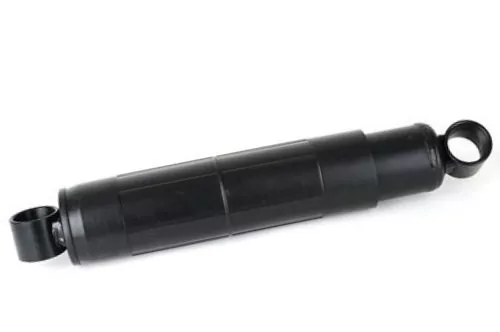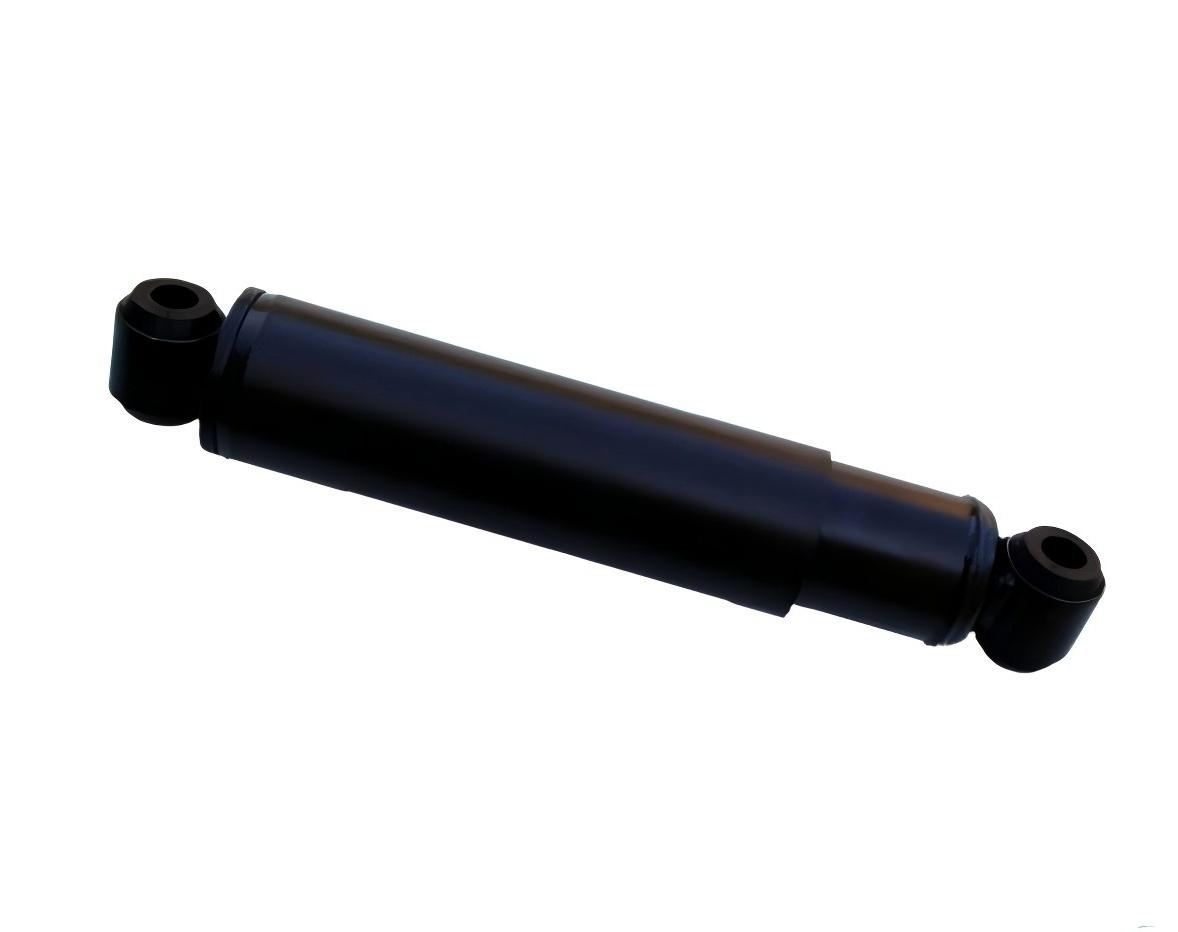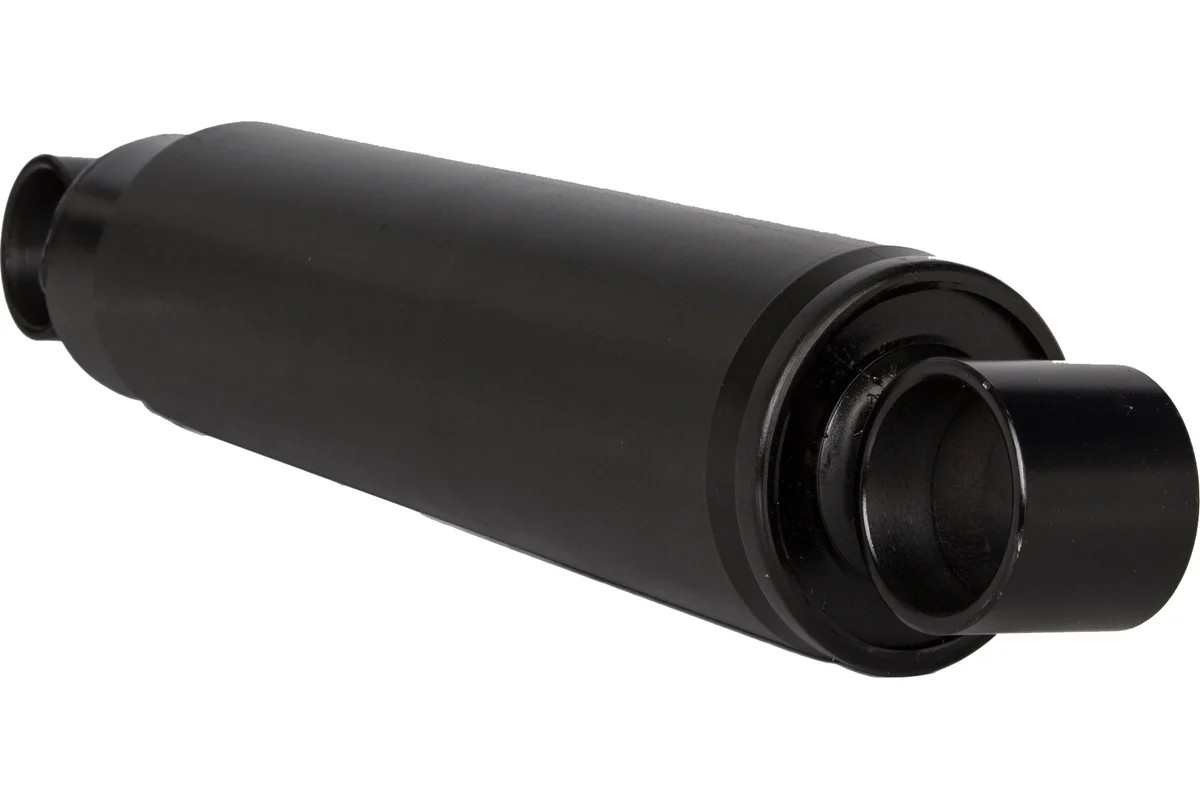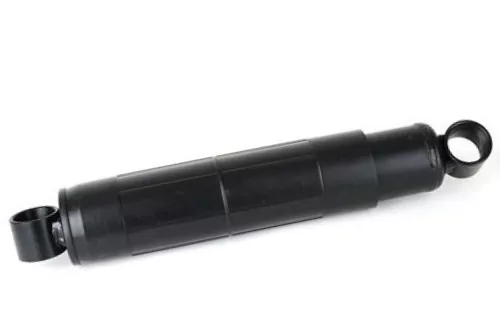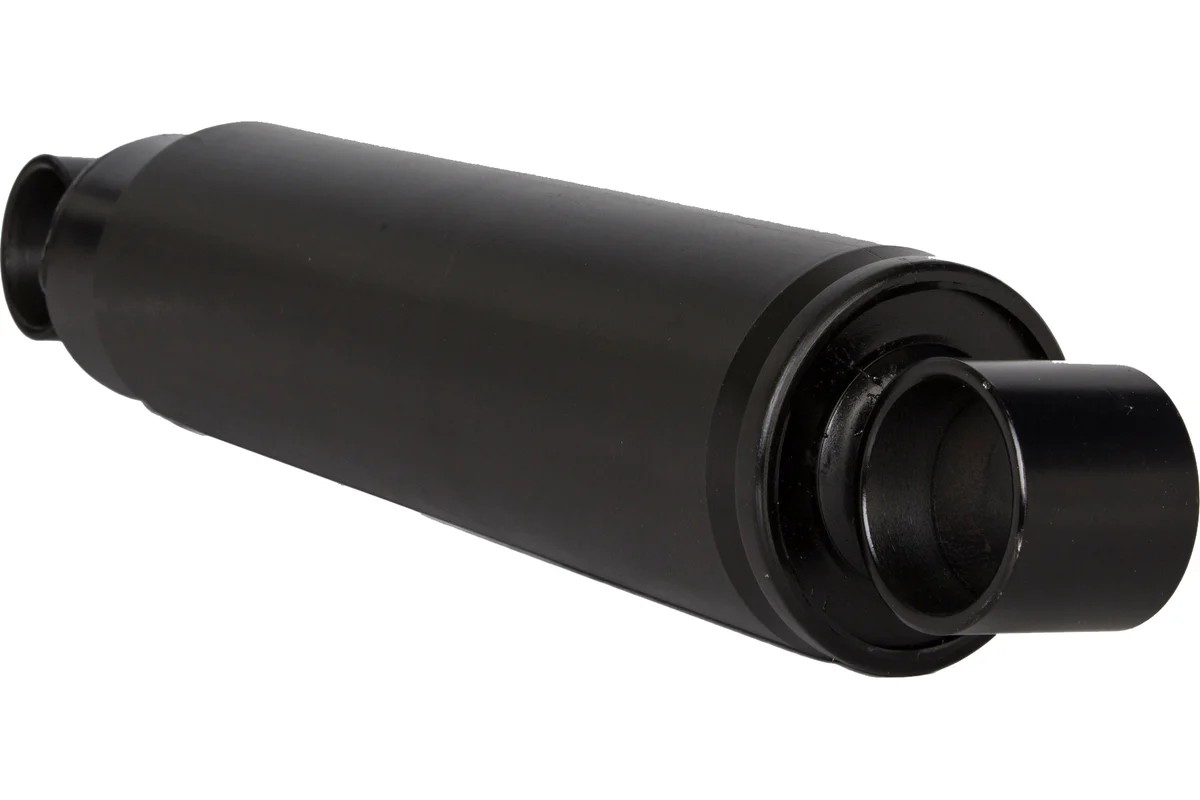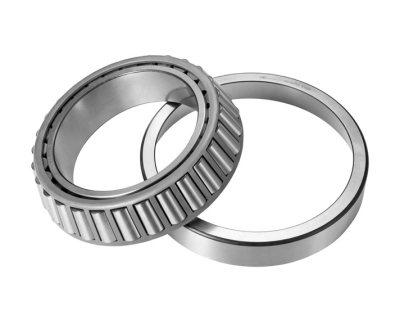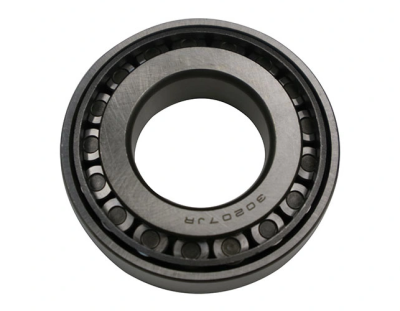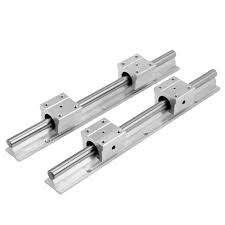Rear Axle Damper A1-237/412.2905006-01 15.2905006-41
1. Short dynamic response time:
Fast response to vibration, can quickly absorb and disperse the impact energy in a short period of time, improve the stability and safety of the equipment.
2. Small friction resistance:
Friction control resistance is relatively small, generally less than 1% to 2% of the rated load, which helps to reduce energy loss and improve equipment efficiency.
The Rear Axle Damper A1-237/412.2905006-01 15.2905006-41 is a hydraulic shock absorber that consists of a spring, a piston, and a reservoir cylinder, which transmits energy through the fluid for damping and effectively reduces vehicle vibration.
Product Description
OE No. | A1-237/412.2905006-01 | Reference No. | 15.2905006-41 |
Length 1 | 414mm | Length 2 | 657mm |
Diameter | 76mm | Piston rod diameter | 25mm |
Weight | 6.35kg | Car makes | MAZ semitrailer |
System | Twin-Tube | Fixing method | Top eye |
Type | Oil Pressure | Construction | Telescopic Shock Absorber |
Structural differences between different types of shock absorbers
Unidirectional acting shock absorber:
Acts only during the recovery stroke (i.e., the process of returning the spring to its original state), absorbing and dissipating vibration energy through a throttle or valve within the shock absorber core.
Two-way acting shock absorber:
Acts in both the compression stroke (i.e., the process of the spring being compressed) and the recovery stroke. This type of damper usually has a more complex structure and higher performance requirements.
Gas shock absorbers (e.g. gaseous shock absorbers):
Using a gas (e.g., nitrogen) as the working medium, damping is achieved through compression and expansion of the gas. Its structure usually includes a closed gas chamber and a movable piston, which is equipped with a throttle valve to control the flow rate of the gas.
Electromagnetic shock absorber:
Utilizes electromagnetic force to regulate the damping force of the shock absorber. The structure usually consists of an electromagnetic coil and a movable magnet or iron core, and the damping force is adjusted by changing the current in the electromagnetic coil to produce different magnetic forces.

